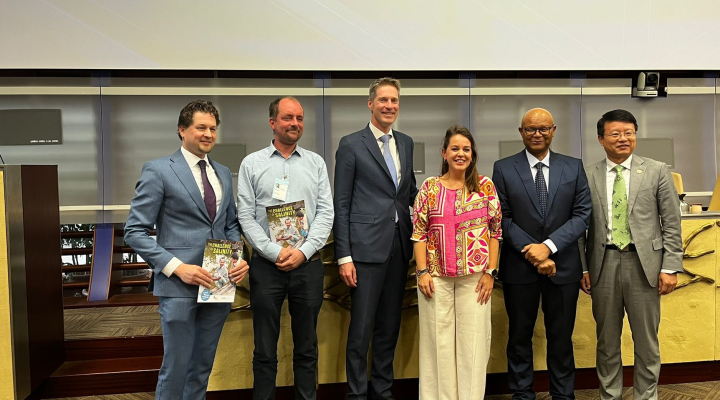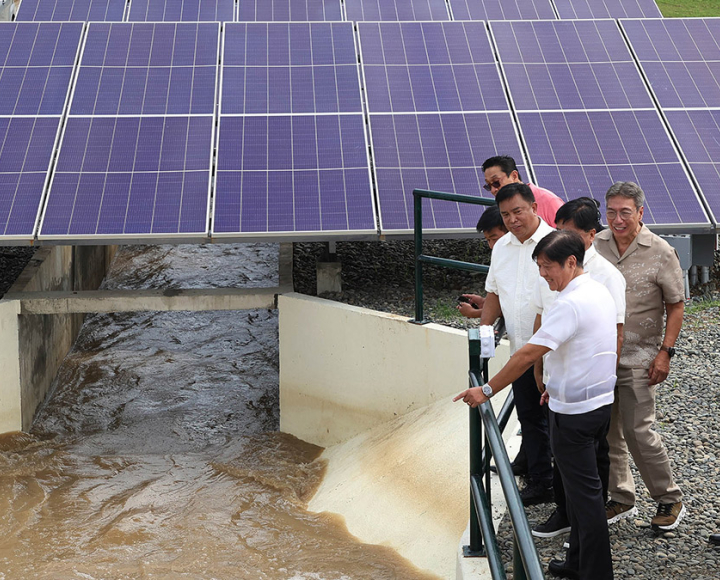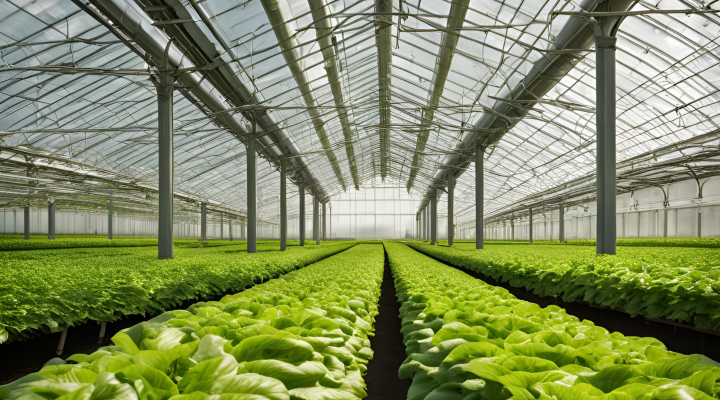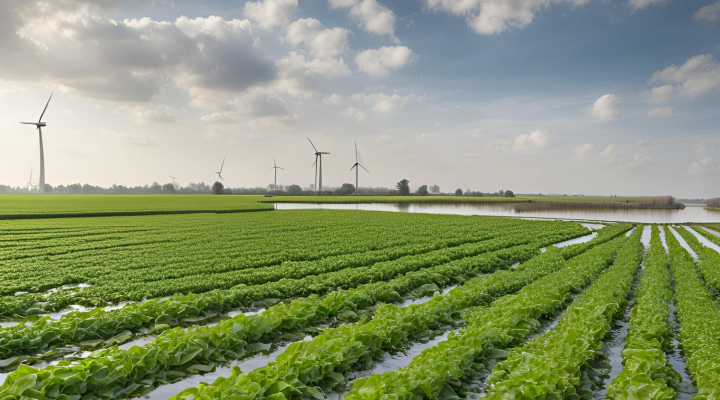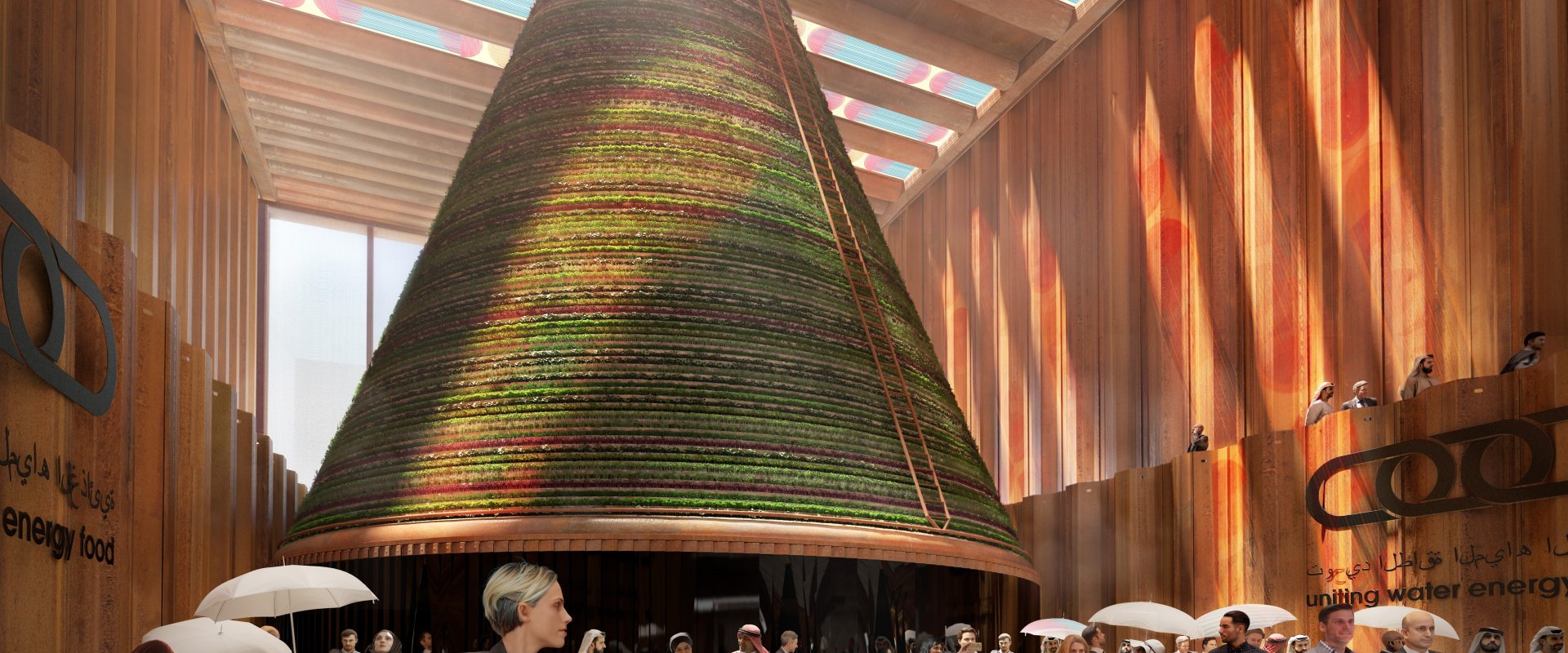
Expo 2020 Dubai: Dutch pavilion and its mysterious cone for vertical farming
In the Dutch pavilion at Expo2020 Dubai a huge cone dominates the floor. It produces water from the air and energy from the sun to grow food such as mushrooms and basil.
On 1 October the Expo2020 Dubai will open its gates till 31 March next year. The Dutch pavilion is situated in the Sustainability District and has as theme Uniting Water, Energy and Food.
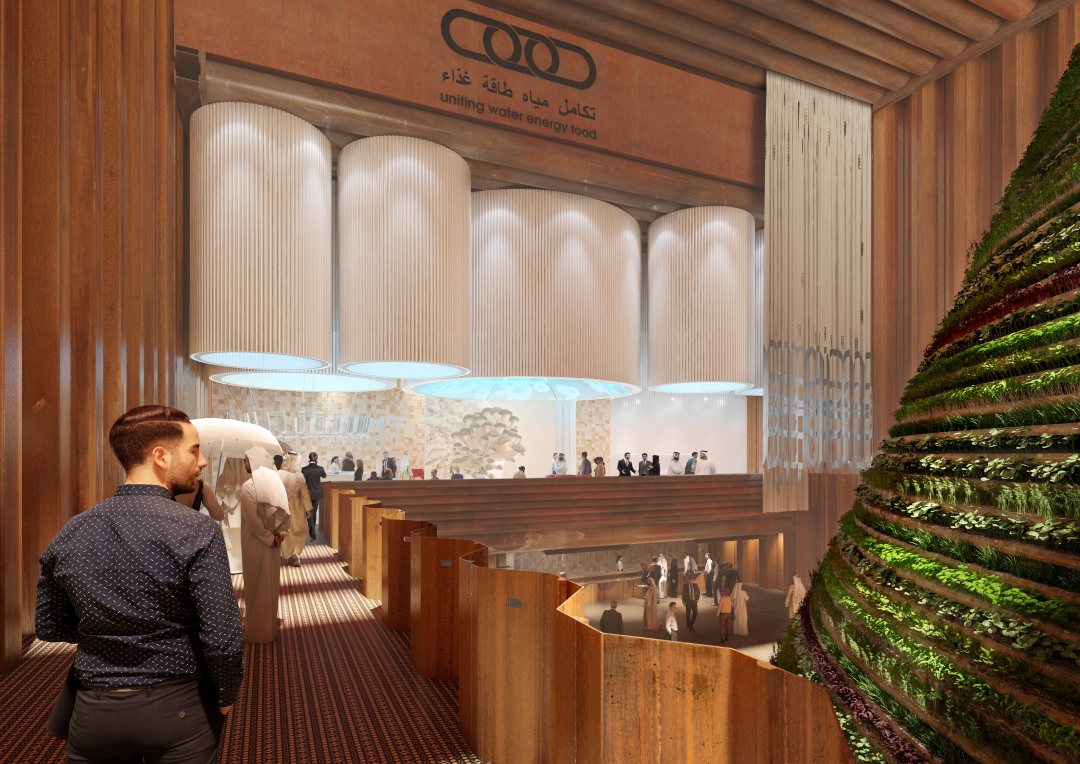

Experience the biotope
The Dutch pavilion is built around a 19 m in diameter green cone that creates a biotope, essentially a miniature world where the climate is controlled naturally. It showcases Dutch innovative technologies that have the potential to be scaled up for the production of food at any given location in the world.
Inside the cone, with less sunlight, a mushroom nursery is shown. The outside of the cone is covered with rings where sprouting greens have been planted such as Basil Cress.
The pavilion exhibits a new way of thinking about water, energy and food to help find efficient solutions for future global challenges. Water and energy resources will increasingly come under threat as the world population continues to grow and wealth increases.
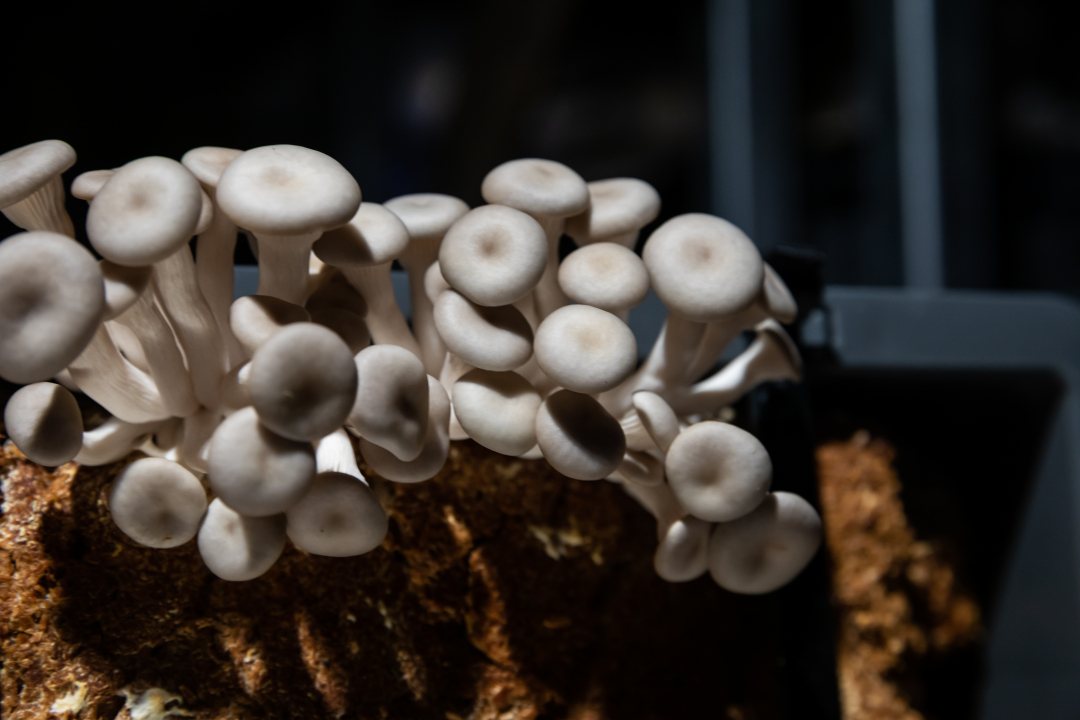

Ideal conditions to grow food
The story of the biotope starts with water. Based on the water harvesting innovation by designer Ap Verheggen, a SunGlacier installation collects hundreds of liters of water every day from desert air.
The solar cells in the pavilion’s skylights, devised by solar designer Marjan van Aubel, together with regular solar roof panels, provide the SunGlacier with electricity. At the same time, these skylights allow sunlight to enter the pavilion, which the plants need for photosynthesis.
The harvested water and the solar energy are used to create an ideal climate for growing food. Inside the cone the climate is cold, dark and humid. Outside the cone the air is humidified and CO2-rich.
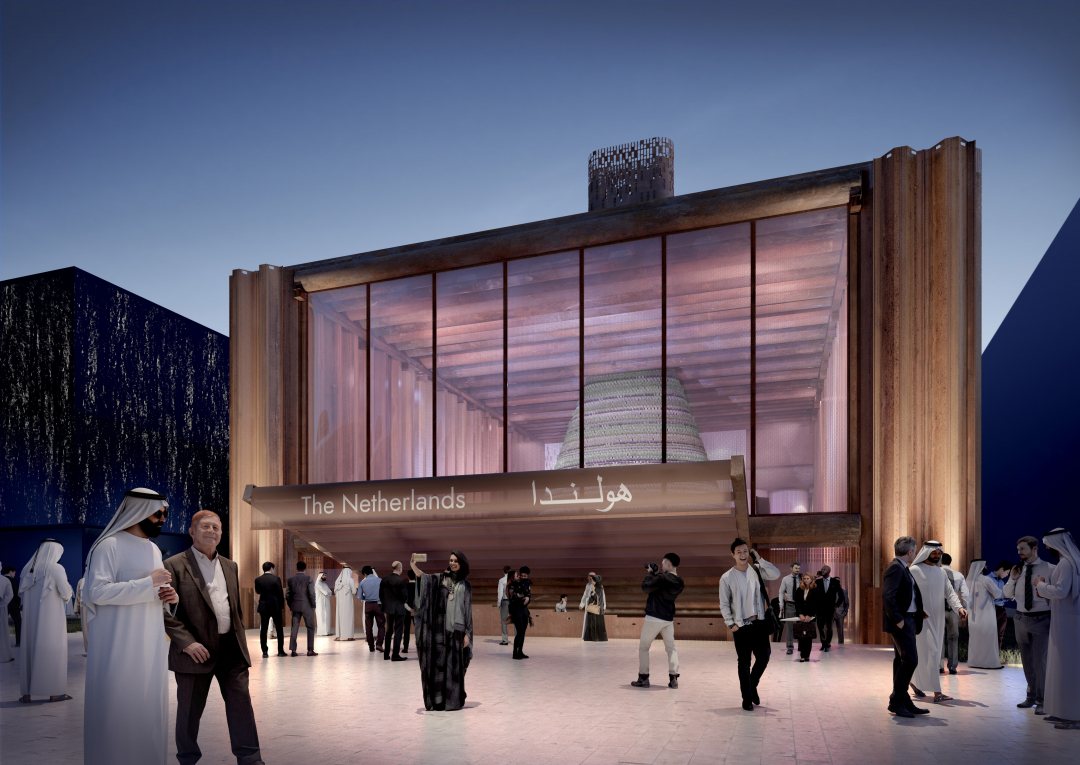

Local food production
The production of food with local resources anticipates on the growing demand in the Gulf region to produce its own food. The region has a shortage of fresh water, but a wealth of solar energy.
‘With our knowledge and expertise, the Netherlands can offer solutions that unite water, energy and food’, says H.E. Carel Richter, Consul General of the Kingdom of the Netherlands in Dubai and Commissioner General of The Netherlands Pavilion, Expo 2020 Dubai.
’Expo 2020 Dubai is a truly unique platform, where we present Dutch innovations to the United Arab Emirates and the rest of the world’, Richter continues. ‘With our knowledge and expertise, the Netherlands can offer solutions that unite water, energy and food. Always with a keen eye to corporate social responsibility.'
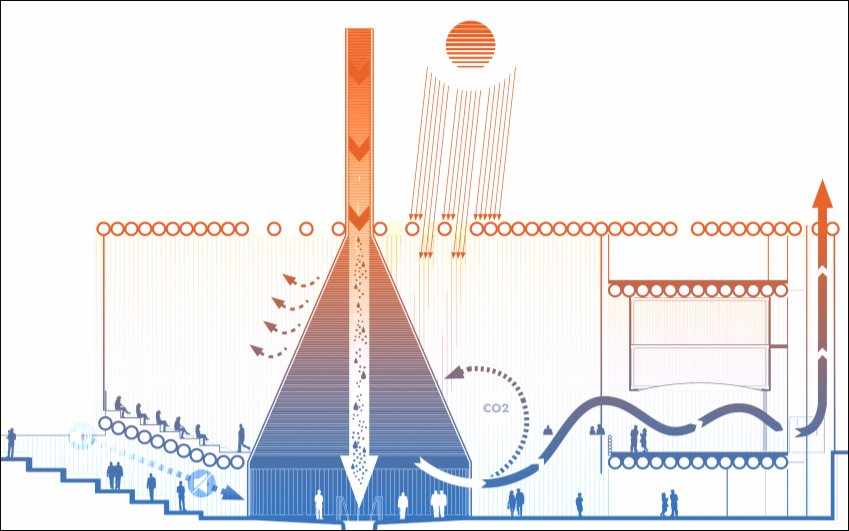

Thematic weeks
Across the entire six months, thematic weeks will be held on global issues. Experts will address solutions during live and online meetings.
Water-related thematic weeks involving the Dutch pavilion:
● 2021
3-9 October: Climate and Biodiversity
31 October – 6 November: Urban and Rural Development Week
6 November: National Dutch Day
● 2022
27 January – 2 February: Global Goals Week
17 – 23 February: Food, Agriculture and Livelihoods
20 – 26 March: Future Mega Cities
Some of these thematic weeks will include an incoming trade mission from the Netherlands. On 23-24 November the expo will coincide with the Global Forum for Innovations in Agriculture (GFIA) and on 17-19 January 2022 with the Abu Dhabi Sustainability Week (ADSW).
For more information, news and updates about the Dutch water sector presence at EXPO Dubai, keep an eye on this website and make sure you follow us on Twitter @HollandWater and Facebook.
More information: DutchDubai




